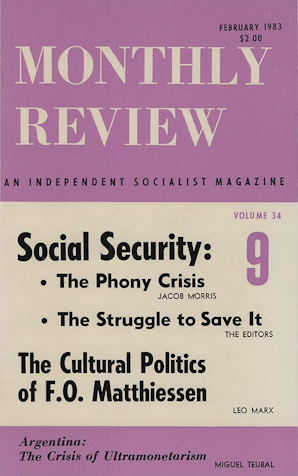Article by The Editors
- January 2026 (Volume 77, Number 8)
- December 2025 (Volume 77, Number 7)
- November 2025 (Volume 77, Number 6)
- October 2025 (Volume 77, Number 4)
- September 2025 (Volume 77, Number 4)
- July-August 2025 (Volume 77, Number 3)
- June 2025 (Volume 77, Number 2)
- May 2025 (Volume 77, Number 1)
- April 2025 (Volume 76, Number 11)
- March 2025 (Volume 76, Number 10)

